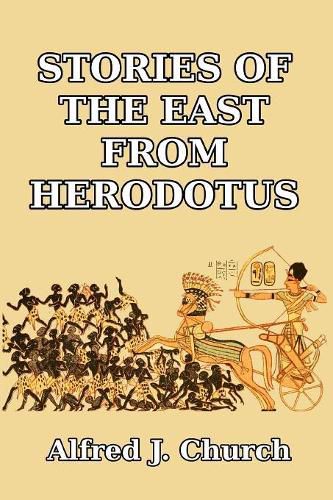Readings Newsletter
Become a Readings Member to make your shopping experience even easier.
Sign in or sign up for free!
You’re not far away from qualifying for FREE standard shipping within Australia
You’ve qualified for FREE standard shipping within Australia
The cart is loading…






This title is printed to order. This book may have been self-published. If so, we cannot guarantee the quality of the content. In the main most books will have gone through the editing process however some may not. We therefore suggest that you be aware of this before ordering this book. If in doubt check either the author or publisher’s details as we are unable to accept any returns unless they are faulty. Please contact us if you have any questions.
Herodotus, the father of history, is possibly the most famous historian of all-and perhaps the most maligned, despite his clear warning at the start of his book that he was merely recording, not vouchsafing, those things that he had not seen himself. As a result, his accounts are often dismissed, but as Alfred Church’s masterful retelling shows, this is an unjust assumption.
Starting with the reign of King Croesus of Lydia (ca. 560 BC), his wars with the Persians, and the rise of Cyrus the Great of Persia, Herodotus’s story line moves through the late Egyptian dynasties, and deals with their downfall and submission to the Persians. The stories of Cyrus’s successor, Cambyses, and the renowned King Darius are related, along with a fascinating-if brutal-account of the habits of many of the peoples, Indo-European and otherwise, who shaped the destiny of the Ancient Middle East.
The author is as careful as Herodotus in his relation of the ascertained facts, and writes in his preface:
I should be sorry that readers who are not acquainted with the work of the ‘Father of History’ should carry away from this book the impression that he is nothing more than a credulous and gossiping teller of stories. That he was often deceived, and that he writes with a simplicity which is quite remote from our ways of thinking, is manifest; but those who know him best are aware that he was nevertheless a shrewd and painstaking observer, whose credit has been distinctly increased by the discoveries of modern times.
This edition has been completely reset, and contains all the original text and illustrations.
$9.00 standard shipping within Australia
FREE standard shipping within Australia for orders over $100.00
Express & International shipping calculated at checkout
This title is printed to order. This book may have been self-published. If so, we cannot guarantee the quality of the content. In the main most books will have gone through the editing process however some may not. We therefore suggest that you be aware of this before ordering this book. If in doubt check either the author or publisher’s details as we are unable to accept any returns unless they are faulty. Please contact us if you have any questions.
Herodotus, the father of history, is possibly the most famous historian of all-and perhaps the most maligned, despite his clear warning at the start of his book that he was merely recording, not vouchsafing, those things that he had not seen himself. As a result, his accounts are often dismissed, but as Alfred Church’s masterful retelling shows, this is an unjust assumption.
Starting with the reign of King Croesus of Lydia (ca. 560 BC), his wars with the Persians, and the rise of Cyrus the Great of Persia, Herodotus’s story line moves through the late Egyptian dynasties, and deals with their downfall and submission to the Persians. The stories of Cyrus’s successor, Cambyses, and the renowned King Darius are related, along with a fascinating-if brutal-account of the habits of many of the peoples, Indo-European and otherwise, who shaped the destiny of the Ancient Middle East.
The author is as careful as Herodotus in his relation of the ascertained facts, and writes in his preface:
I should be sorry that readers who are not acquainted with the work of the ‘Father of History’ should carry away from this book the impression that he is nothing more than a credulous and gossiping teller of stories. That he was often deceived, and that he writes with a simplicity which is quite remote from our ways of thinking, is manifest; but those who know him best are aware that he was nevertheless a shrewd and painstaking observer, whose credit has been distinctly increased by the discoveries of modern times.
This edition has been completely reset, and contains all the original text and illustrations.